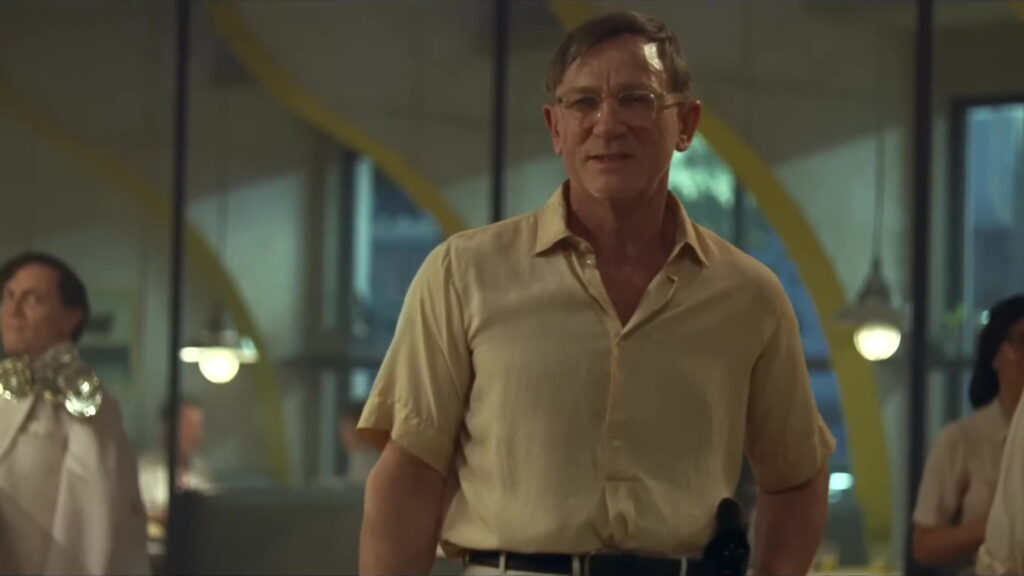Queer captures Burroughs’ essence, alongside all of his shortcomings
Written by Ian Thomas Malone, Posted in Blog, Movie Reviews
Much like his novels, William S. Burroughs is difficult to unpack. The elder statesman of the Beat Generation, Burroughs cemented his legacy with his 1959 novel Naked Lunch, one of the last American books to face a censorship trial. Unlike his contemporary and friend Allen Ginsburg, who also had the merits of his work debated in court, Burroughs remains a divisive figure in the literary canon, his eloquent prose and innovations frequently undercut by his meandering plotting and excessive repetition. The legend of Burroughs is as much the product of his outsized public persona and the high esteem from figures such as Ginsburg and Kerouac as his actual bibliography.
The novel Queer sat untouched for more than twenty years after it was originally written alongside Naked Lunch and Junkie, the two most noteworthy works of Burroughs’ career. A combination of Kerouac and Burroughs’ own literary agent helped the novel see the light of day. Believed to have been originally written as a companion piece to Junkie, the novel struggles to stand on its own two feet without a healthy understanding of the eccentric writer’s broader ethos, a challenge that director Luca Guadagnino struggled with mightily throughout his film adaption of the book.
The film Queer follows Burroughs’ avatar William Lee (Daniel Craig) as he bums around in Mexico City, spending his days drinking and admiring young men passing through the area. Lee quickly falls for a mostly-closeted GI named Eugene Allerton (Drew Starkey), who gradually falls for his repeated attempts at seduction. The two drink, hook up, and eventually search for drugs, as the typical Burroughs plot usually goes.
Guadagnino brings his typical stylistic A-game. The sets are gorgeous, if not a little sterile for the likes of Burroughs. Craig disappears into the role, putting forth a valiant effort to give the work some semblance of a soul. Craig understands the oversized sense of stature that Burroughs brought to the world, even if he can’t quite replicate it.
Burroughs was not much for resolution. His novels defied all semblance of literary form, a reality that complicates adaptations of his work. Films generally benefit from some sort of structure.
Guadagnino delivers an adaptation that captures the essence of Burroughs’ style and elegance, along with all of his shortcomings. Queer is a beautifully empty narrative. Guadagnino’s fatal mistake is the film’s runtime. 137 minutes stretches the novel’s thin plot past the point of tedium. Whatever goodwill Guadagnino and Craig built up in the first hour is long squandered by the absolute disaster of a third act.
Burroughs the man was full of charisma and charm that was often lost in translation when it came to his written work. Guadagnino and Craig do their best to bring his colorful world to life, but a successful film almost certainly would have required them to do a lot of his work for him. After a while, as was often the case in Naked Lunch or Junkie, the desire to check out becomes too tempting to ignore throughout this luscious slog.











